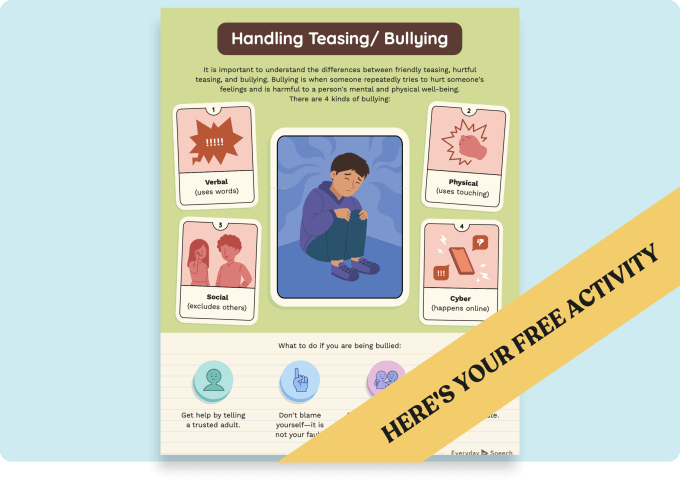Talking the Talk: Teaching Small Talk Skills to Elementary Students
Get free social skills materials
No-prep lessons on self-regulation, emotional recognition, conversation skills, and more.
Sign up hereIntroduction: Small talk is a crucial social skill that enables children to engage in polite conversations, build relationships, and develop their communication abilities. By incorporating principles of Social-Emotional Learning, this blog post aims to help educators facilitate the development of small talk skills among elementary students. We will discuss a no-prep activity, provide discussion questions, mention related skills, and offer next steps for further learning.
No-Prep Activity: Weekend Update
This simple activity requires no preparation or materials and helps students practice small talk by discussing their weekends. Here’s how it works:
- Divide the students into pairs.
- Ask each student to take turns sharing their weekend experiences with their partner. Encourage them to ask questions and show interest in their partner’s weekend.
- After a few minutes, have the students switch partners and repeat the process.
- Once everyone has had a chance to practice, gather the class together and ask for volunteers to share what they learned about their partners’ weekends.
This activity allows students to practice engaging in small talk and develop their listening and questioning skills while building connections with their peers.
Discussion Questions:
Use the following questions to stimulate further discussions about small talk and its importance in everyday interactions:
- Why do you think small talk is important in our daily lives?
- Can you think of other topics that are suitable for small talk besides weekends? Share your ideas with the class.
- How did you feel when your partner showed interest in your weekend? How did you show interest in their experiences?
- What challenges did you face while engaging in small talk? How can you overcome them?
- How can practicing small talk help us make new friends or strengthen existing relationships?
Related Skills:
Besides small talk, there are other relevant skills that contribute to a student’s social-emotional development:
- Active listening: Paying attention, showing empathy, and responding appropriately to what the speaker is saying.
- Empathy: Understanding and sharing the feelings of others, enabling students to connect emotionally with their peers.
- Nonverbal communication: Using body language, facial expressions, and gestures to convey messages and emotions without words.
- Conflict resolution: Resolving disagreements in a constructive manner while respecting the feelings and opinions of others.
- Assertiveness: Expressing one’s thoughts and feelings confidently and respectfully, without being aggressive or passive.
Next Steps:
Teaching small talk and related social-emotional skills can greatly benefit elementary students in their social interactions and overall development. To access free sample materials for these skills and others, sign up at Everyday Speech. By incorporating these activities and discussions in your classroom, you can help students develop essential communication skills and foster positive relationships with their peers.

